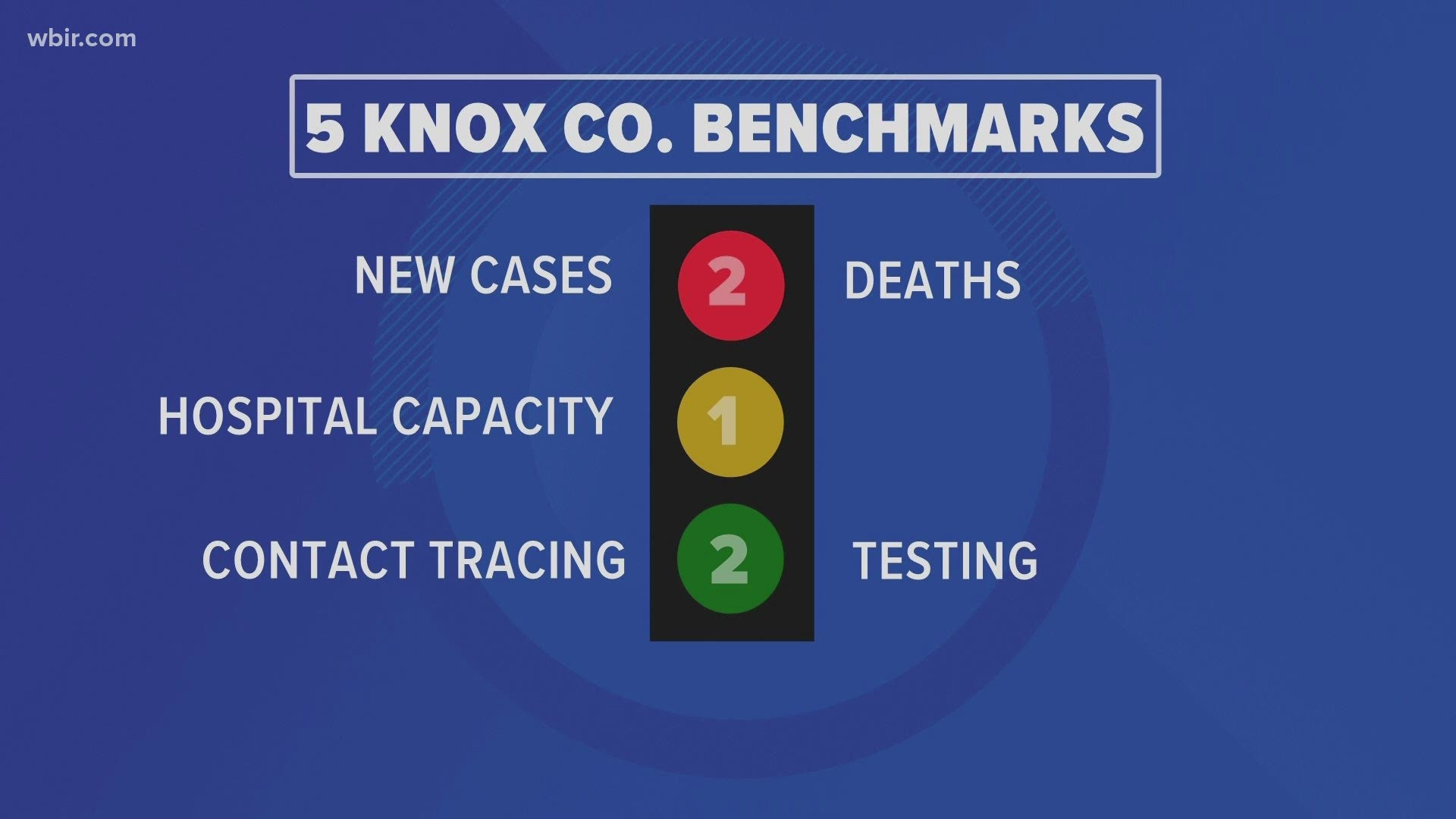KNOX COUNTY, Tenn. — As of Saturday, the Knox County Health Department is including probable cases in its number of total, recovered and active cases.
That is consistent with the Tennessee Department of Health's current reporting process. Beginning Thursday, 10News will also include probable case numbers in our coverage of COVID-19.
To answer your questions about this change, our data team spoke with state and local health leaders.
What is the difference between a confirmed and probable case?
A confirmed case, according to the Tennessee Department of Health, means someone took a polymerase chain reaction (PCR) diagnostic test and received positive results.
A probable case, in the state of Tennessee, means someone had close contact (within 6 feet for more than ten minutes) to a confirmed or probable case during the 14 days before or after illness onset. These people may have declined testing or received negative results from a PCR test. Probable cases also include people who test positive using an antigen test, more commonly known as “rapid testing.”
Probable cases could meet clinical criteria and epidemiological evidence with no confirmatory laboratory testing performed; meet presumptive laboratory evidence and either clinical criteria or epidemiological evidence; or meet vital records criteria with no confirmatory laboratory testing performed, per the CDC.
Either way, TDH said all probable and confirmed cases are treated the same in terms of case investigation, contact tracing, isolation and quarantine.
How many probable cases are there?
As of Aug. 4, the Tennessee Department of Health was reporting 1,441 probable cases out of 114,098 total cases. That’s about 1.3 percent of all cases.
Why are probable cases included?
Dr. Lisa Piercey, Tennessee's health commissioner, said reporting probable cases helps increase transparency.
“We want to present a clear picture of the burden of COVID-19 on our state," Dr. Piercey said. Probable cases are included in a variety of TDH's metrics, including its case rates and zip code maps.
KCHD also wanted to "better represent" the data on their website by including probable cases in its number of active cases and recoveries. Probable cases are also reflected in the county's demographic data, per KCHD.
What are the different kinds of tests available for COVID-19?
Per the Food and Drug Administration, there are three main categories of COVID-19 testing: molecular, antigen and antibody.
The first category, molecular testing, includes PCR tests. It normally involves taking a sample from a nasal or throat swabs and returning results within a week. The FDA said it is meant to diagnose active COVID-19 infections and is “typically highly accurate.”
The second category, antigen testing, is for rapidly diagnosing a current COVID-19 infection. It also involves taking a sample from a nasal or throat swab, but results are available in an hour or less. While positive results are “usually highly accurate,” the FDA says negative results may need to be confirmed with a molecular test.
The third, antibody testing, involves a finger stick or blood draw to tell you whether you’ve been infected with COVID-19 in the past. The FDA says sometimes a second antibody test is needed for accurate results.
Which tests are counted?
According to the Tennessee Department of Health, only PCR tests are currently included in its testing data. Individuals who test positive using a PCR test will be counted as a confirmed case.
A spokeswoman for the department said they are “assessing the feasibility of including antigen test results as a separate data output.” Individuals who test positive using an antigen test will be counted as a probable case.
Antibody or serology tests are not included anywhere in the Tennessee Department of Health’s data.
Are individuals who test positive multiple times counted as multiple cases?
No, each person can only be counted once in the total number of cases, per the Tennessee Department of Health.
As of Aug. 4, the Tennessee Department of Health was reporting 112,657 confirmed cases of COVID-19 and 134,738 positive test results. If someone tests positive more than once, their results will show under the "positive" column multiple times, but not in the "case" column. That is why there is a difference of about 22,000 cases.

